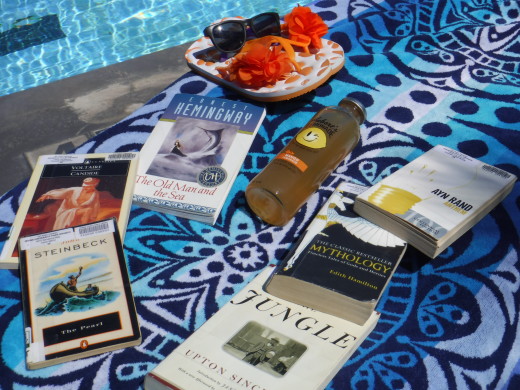
A variety of summer reading assignments. Photo by Isabella Purdyby John Le, Laura Le & Trevor Sonoda, Staff Writers
Many Fountain Valley students spend their summer working on homework assigned to them by a variety of Honors and AP classes. The assignments range from reading a book and taking notes for Honors/AP English to cooking meals for AP Chemistry.
Amy Hollingsworth, English department chair, believes summer assignments help bridge the gap between school years.
“We have so much that we need to go over and are expected to go over, especially in an AP class that I think that extra time is needed to cover material,” Hollingsworth said.
Despite the teachers’ best intentions, their students may lack the motivation to actually do the assignments during their summer break.
“I wouldn’t say I enjoyed doing the summer assignments since there were parts that were exceedingly boring and tiring, but I do think that it has prepared me for the new year,” said Jennifer Ta (’20).
Some students feel summer assignments are glossed over in class and don’t make an impact on the students.
“You’re probably going to go over [the assignment ] for like two days in class, and then never talk about it again,” said Tracy Nguyen (’18).
Even teachers question the idea of summer assignments.
“While I believe summer assignments can be beneficial, I have given up on them in the past because I think kids should be enjoying their summers off with their friends and families, traveling, going to the beach, being human and enjoying youth,” said AP Biology teacher Emily Barro.
Even though summer assignments benefit students in many ways, often times it becomes more of a hassle for students who want to enjoy their summer.
“The Japanese invented a word, Karoshi, [which] basically means ‘death from too much work’. I am an anti-Karoshi-ist,” said Barro.





